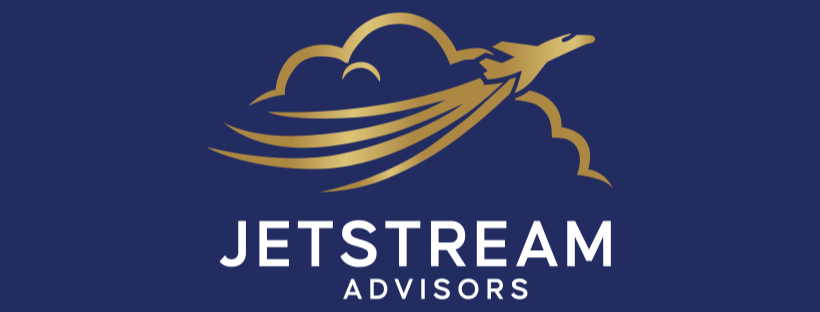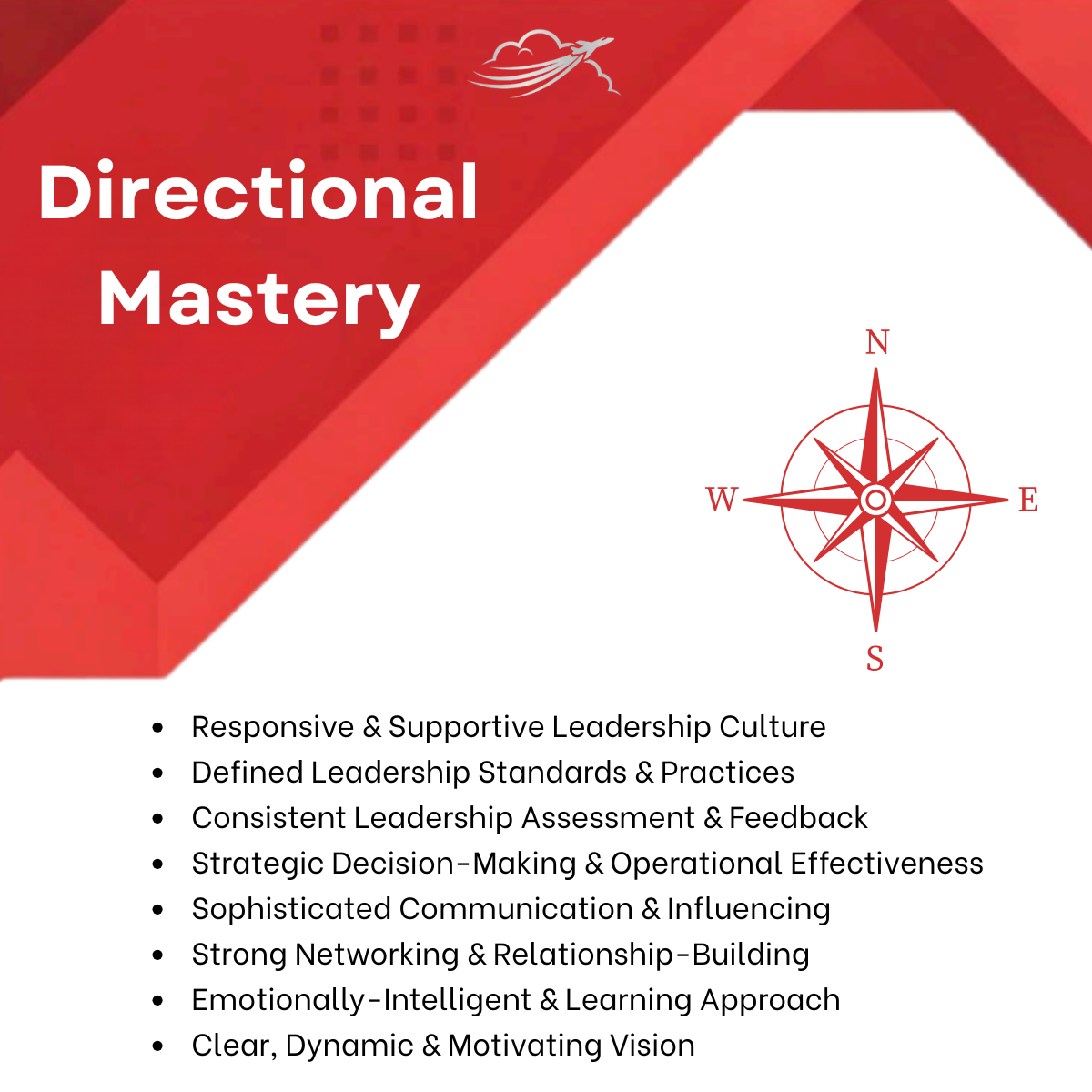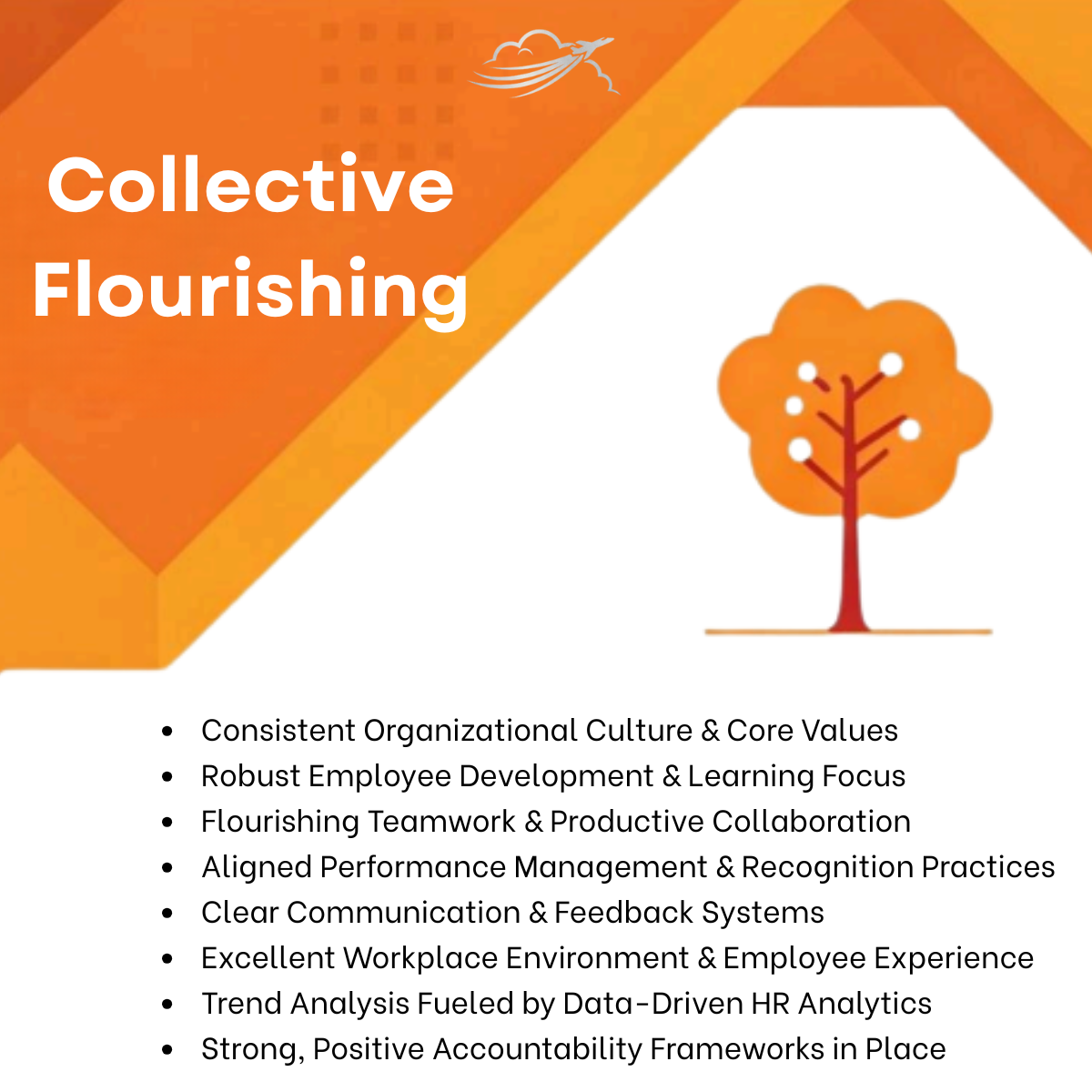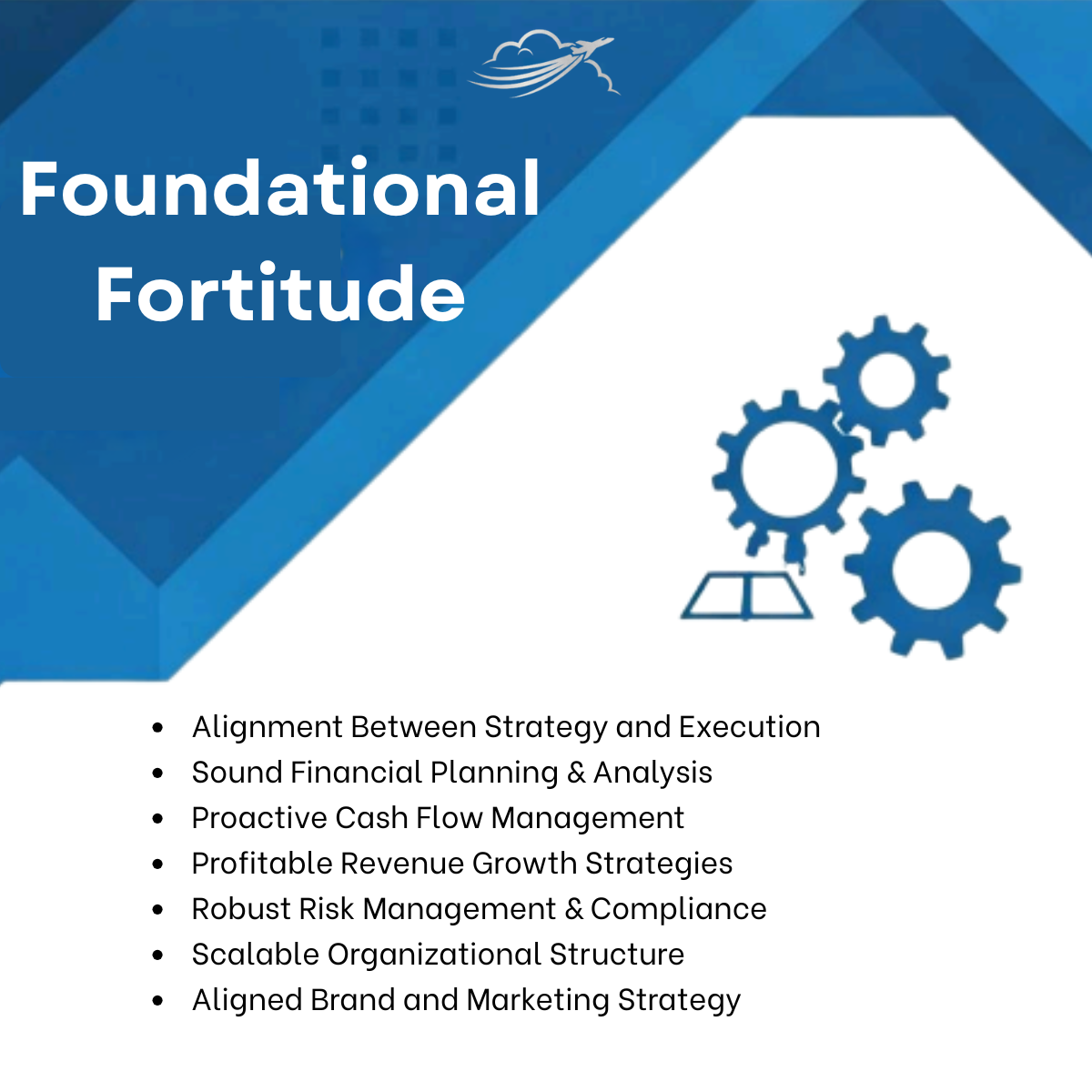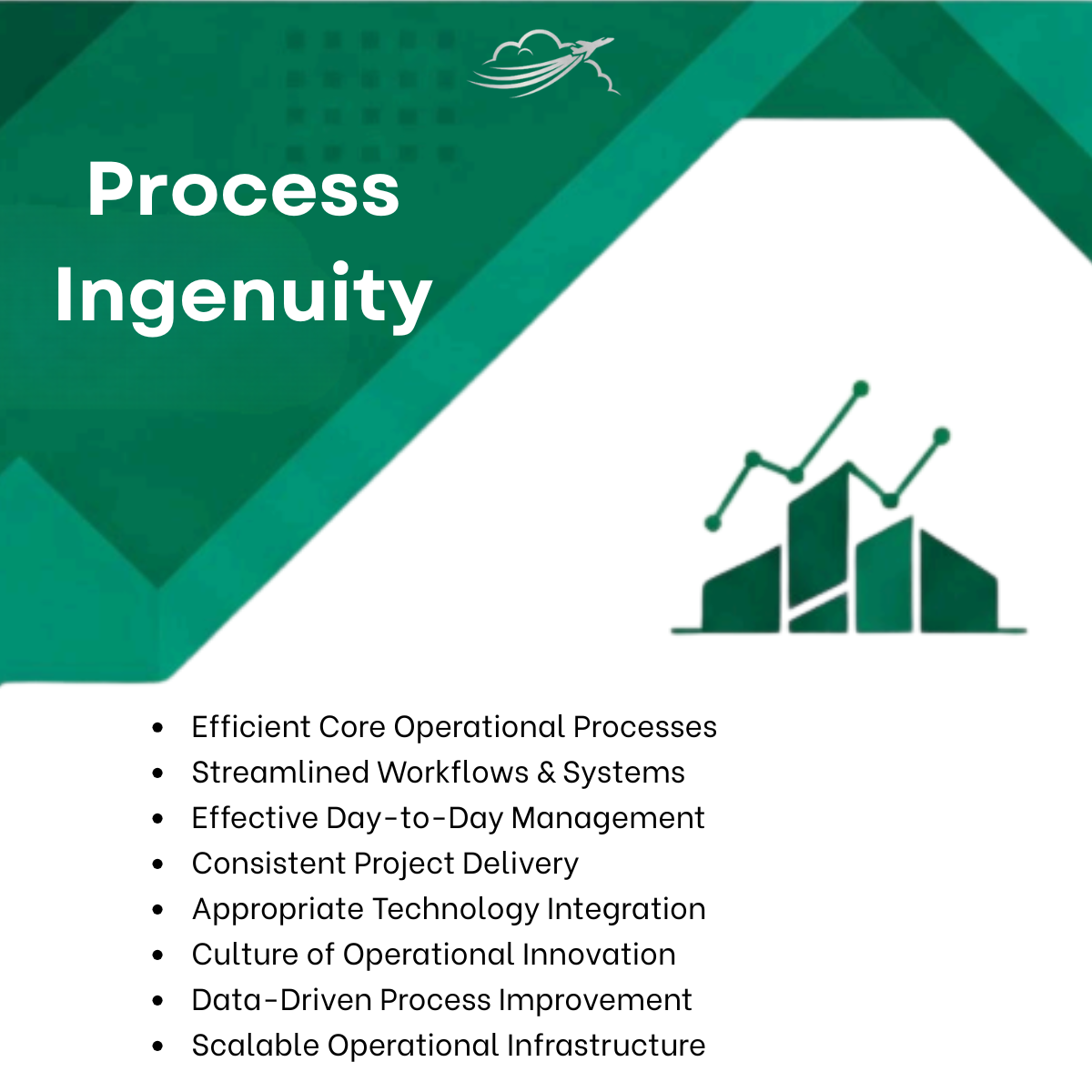The JetStreamWay®: Our Integrated Methodology
Your Business is a System. It's Time to Treat It Like One.

Most consulting solutions tackle business challenges in silos. This fragmented approach is why transformations often fail to deliver lasting results. At JetStream Advisors, we know that your business is an interconnected system where strategy, culture, processes, and finances are all intrinsically linked. The JetStreamWay® is a comprehensive transformation journey designed to strengthen your entire system at once. Every sprint of our program simultaneously advances all Four Pillars of organizational health, closing the strategy-execution gap and building sustainable momentum.

The Dual Transformation Imperative: Upgrading the Aircraft & Developing the Flight Crew
A state-of-the-art aircraft is useless without a skilled flight crew, and the world's best pilots cannot break performance barriers in a faulty machine. This fundamental belief is the engine of The JetStreamWay®. Our dual-transformation model runs in parallel throughout your entire journey:
Upgrading the Aircraft (The Business Transformation): We work ON the business, systematically strengthening its core operational and financial systems—its airframe. We treat the business like a high-performance machine that must be engineered for excellence.
Developing the Flight Crew (The Leadership Transformation): We work IN the business, elevating the capabilities of your executive team to pilot the newly upgraded aircraft with strategic vision, cohesion, and confidence.

The Four Pillars: The Integrated Framework for Peak Performance

The Agile Sprint Methodology: How We Build Momentum: The 6-Week Sprint
We’ve abandoned the slow, linear nature of traditional consulting for an agile, sprint-based format. This approach creates urgency, delivers tangible results, and provides the flexibility to course-correct as new data emerges. Each 6-week sprint is a self-contained cycle of planning, execution, and review that includes:
Action Labs: Hands-on, facilitated working sessions where your team applies operational concepts directly to the business—building financial models, mapping processes, and auditing tech stacks.
Executive Coaching Labs: Professionally facilitated peer advisory sessions where leaders debrief assessment results, tackle leadership challenges, and receive confidential feedback in a forum designed to foster psychological safety.
Transformation Journey: Your Custom Flight Plan
Phase 1: The Foundation (Sprints 1-3 | Required & Sequential)
This initial, mandatory phase establishes a clear, data-driven baseline and aligns your entire organization on a unified destination. We conduct a "Pre-Flight Check", "File the Flight Plan", and map the "Takeoff & Climb Strategy". The insights gathered here inform the customization of your remaining journey.
Checkpoint: Flight Plan Customization
Based on the deep insights from Phase 1, we conduct a collaborative workshop to co-design the sequence of your Phase 2 sprints, ensuring we tackle your most pressing challenges and opportunities first.
Phase 2: The Custom Ascent (Sprints 4-12)
This is the execution phase where we gain altitude. We deploy sprints from our library—from "Securing the Cabin" to "Engaging the Autopilot"—to build capability and guide your organization to its cruising altitude of peak performance.
